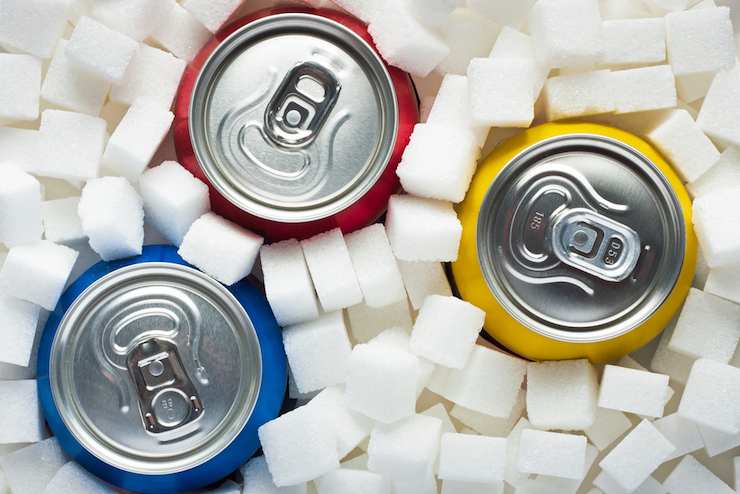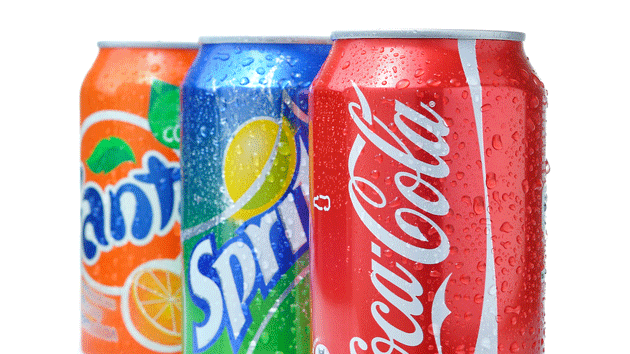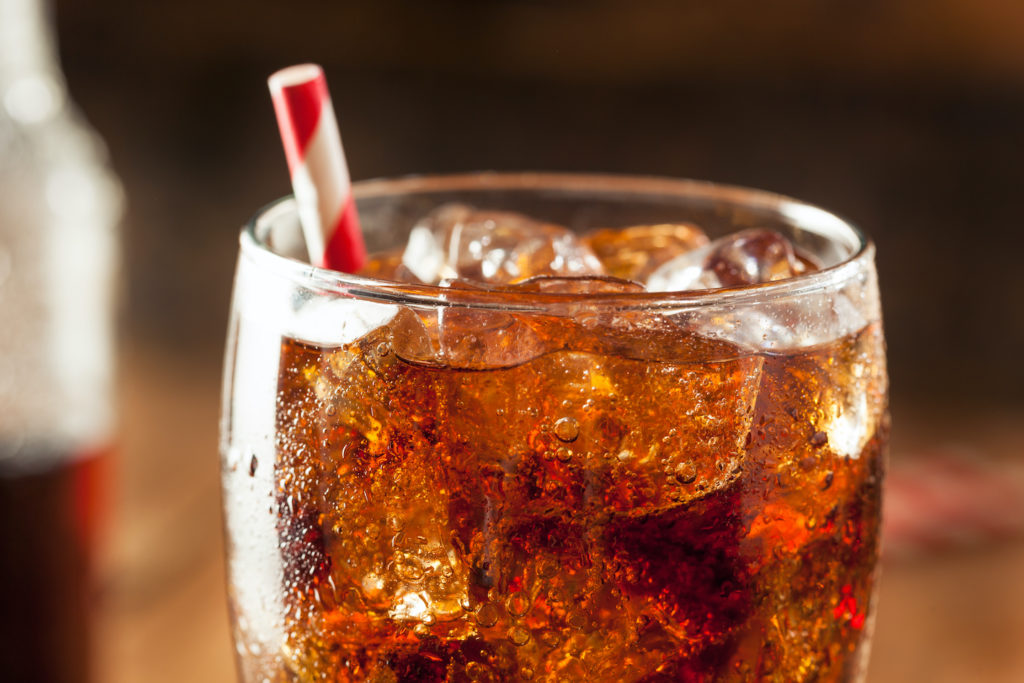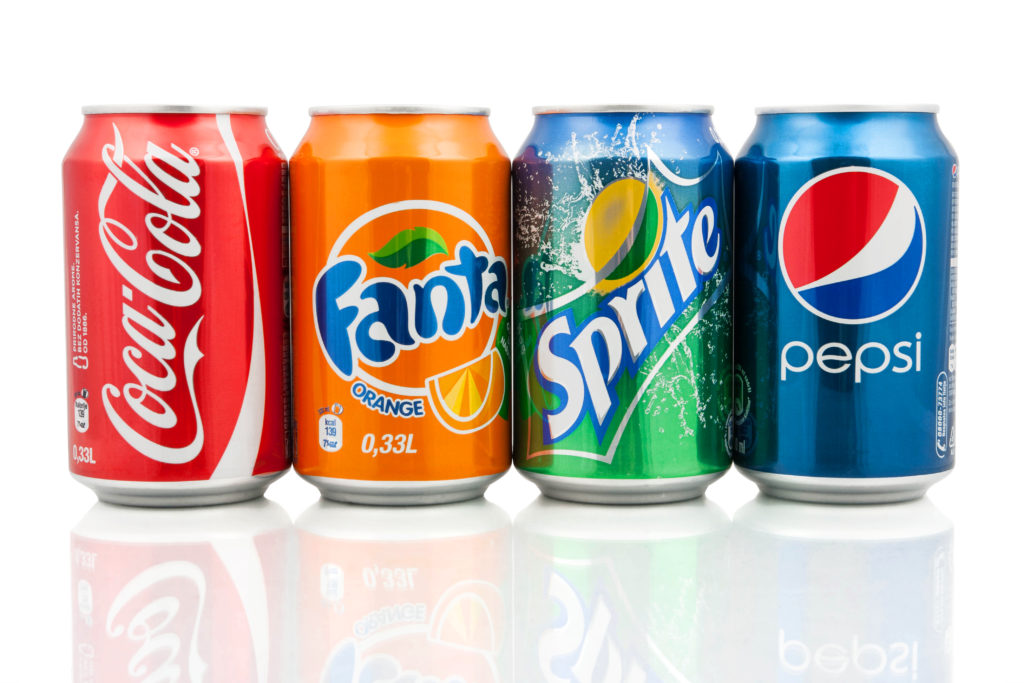POWER OVER PLEASURE
Amy Dirks on Making Smart Choices: Why Athletes Should Not Drink Soda
Nutrition information for soccer players from Amy Dirks. Discover what makes this column so different: Read Meet SoccerToday’s Nutritionist Amy Dirks – Great Info for Soccer Players of All Ages
Have a nutrition question? Ask Amy! Just email Amy or visit Amy Dirks Sports Nutrition.

NUTRITION FOR SOCCER PLAYERS: The Info on Soda
If there was ONE thing you could do to better your diet and improve your performance — and your overall health— it’s to eliminate drinking soda.
Before even considering the foods you are putting into your mouth, you must re-think your drink.
Why? What harm is a soda per day going to do?
Typically, it’s not just one soda per day that people drink. With larger portion sizes, more choices available than ever, and easier access (with even vending machines in schools,) the actual amount most people drink is more than one can of soda. However, just one can per day can lead to a host of health problems, even for those that exercise and are non-smokers.
There is a lengthy list of issues that can arise from drinking too much of this “wicked liquid”. Don’t let the ads with famous athletes drinking these products trick you into thinking it’s ok. The marketing campaigns for soda can be are pretty clever!
Soda can be extremely addictive.

With its sweet flavor and carbonation, the brain quickly gets excited at the first sip, a similar addiction to that of drugs.
Although many soda companies are now going back to sugar cane as their sweetener versus high fructose corn syrup, in the body, the sugar is still affecting the brain, hormones, and insulin regardless of the form it’s received. This does not exclude diet soda either! Diet soda tricks the brain into thinking it’s getting sugar from the artificial sweeteners, so the same cascade of events occurs and people can actually gain weight from drinking diet soda!
If you look at the CDC’s Obesity trends, when high fructose corn syrup was introduced into the United States in the late 70s, obesity rates increased steadily and still continued to do so.
One-third of children ages 10-17 are overweight or obese.

Over 35% of young adults ages 20-39 years are obese. For each serving of soda consumed daily, the risk of obesity increases 1.6 times.
Remember, soda provides no nutritional value whatsoever.
Empty calories from sweetened beverages such as sodas, coffee drinks like frappuccinos, sports drinks, and other energy drinks are partly to blame. Each soda contains ~10 teaspoons of sugar, and a few contain even higher amounts of sugar. The amount of recommended added sugar per day is around 6 to 9 teaspoons! So if you are having a soda in addition to any other refined, processed foods, you are already exceeding the amount you should have in a single day.
Sodas should not be part of an athlete’s regular diet unless treated as that…a TREAT.
For example, several hours after a long game, one can enjoy a soda but for the serious athlete, soda is not the optimal choice, even for a treat. I would rather eat my treat than drink it!

Drinking soda before a game or event can lead to gastric distress such as bloating, burping, and even worse diarrhea because of the simple sugar.
The liquid sugar in soda is already broken down so it rapidly spikes energy levels.
It raises blood sugar levels but is burned off just as quickly, leaving you flat on your face (lower blood sugar levels), which is certainly not ideal for an endurance sport such as soccer.
Carbonated drinks can linger in the gut longer than non-carbonated drinks, which makes it a poor choice for not only pre-game but also post-event when you should be consuming nutrient-packed foods and water or electrolyte drinks for recovery and rehydrating the muscles.
If you enjoy the carbonation and flavor of soda, use healthier alternatives such as Kombucha (a fermented tea drink that is lower in sugar), sparkling waters (plain with citrus/fruit to flavor or naturally flavored), mineral waters/seltzer waters, sparkling coconut waters, or club soda
See the video below for a more cartoon version of the same message on soda:
Also, the documentary “That Sugar Film” is a great show for athletes to watch to understand more on sugar and how it affects the body.
Resources:





